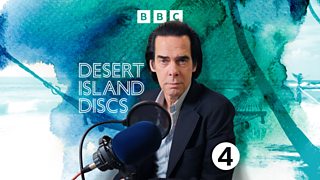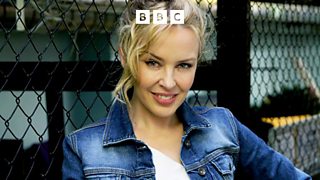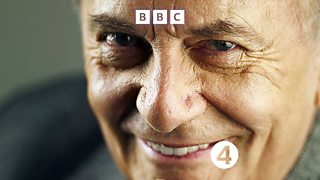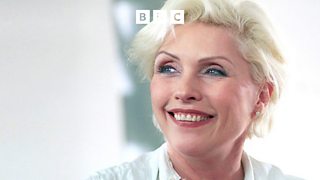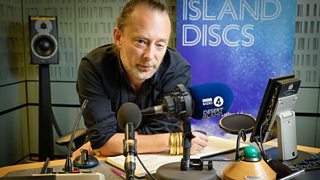Eight things we learned from Nick Cave鈥檚 Desert Island Discs
Australian singer and writer Nick Cave made his name with his post-punk band The Birthday Party. He formed his current band the Bad Seeds in 1984 and his intense and provocative songwriting has attracted a devoted fan base and critical acclaim. The band’s 18th album, Wild God, was released in 2024 and has been nominated for two Grammy Awards.
Here are eight things we learned from Nick’s Desert Island Discs…
-
![]()
Listen to Nick Cave鈥檚 Desert Island Discs
Listen on 91热爆 Sounds to hear the episode with full music tracks first.
1. He has always kept strict office hours for writing
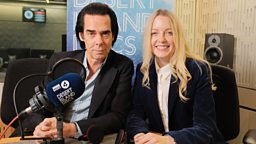
“I go to work like everybody else does, and it's not up for debate,” Nick says. “I get up and I wear a suit, and I find the more strictures I put on things – the more I kind of hem the creative process in – the better I write, and weirdly, the more my imagination has a certain freedom.”
He continues: “I'm envious of people who don't need that. There are people that just wander round the world and ideas fall down from wherever, and they sit and they strum a guitar one day and they write a song, and then they carry on living. I could never work in that way.”
2. His father taught him that art should “shake you up”
Nick describes how his father, a teacher, educated him in art and literature. “He would take books out of my hand that he thought were less than and replace them with something that had the same body count but was more interesting… I would be reading some crappy crime novel and he would put Titus Andronicus, let's say, by Shakespeare in my hand, because it's a massively bloody play.”
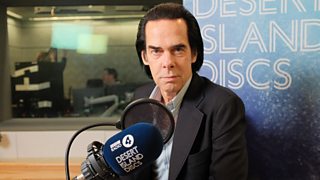
I just never really liked to be told what to do, and how to behave, and what to sing, and what to play and all of this sort of stuff.Nick Cave on being rebellious in school
He continues: “I think my father enjoyed taking me to things that were slightly out of order, that I was a little too young to be seeing, that just shook up what I thought about things… When I was quite young, he used to take me to shows by Barry Humphries [who performed as Dame Edna Everage], and I was only 12. Now, what she is on TV is one thing, but a live show is absolutely outrageous and I remember just being absolutely entranced. But he also took me to film festivals where there were quite adult movies; and he read me the first chapter of Lolita [by Vladimir Nabokov] and said, ‘This is what literature is all about.’”
Nick thinks his father was introducing him to “the idea that art should shake you up, and should confront you and shock you and offend.”
3. His misbehaviour at school didn’t go unnoticed at home
Nick went to school in Wangaratta, Victoria, where his father taught Maths and English, and his mother was a school librarian. His parents would often find him sitting outside the headmaster’s office. “I was just a troublemaker,” he recalls. “Outspoken in class, talking back all the time, a kind of me-against-them feeling towards the school in general, that ended in me getting kicked out.”
He says, “I just never really liked to be told what to do, and how to behave, and what to sing, and what to play and all of this sort of stuff. And I think this very much carries on to this day. I find that fundamentally sticks in my craw.”
4. His move to London prompted some heartfelt letters back home
Nick moved to London in 1980, not long after the death of his father, with his band The Birthday Party. At that time he lived in a bedsit in Earl’s Court with his fellow band members and their girlfriends. He says he downplayed their living conditions in the letters he wrote to his mother.
“She died during COVID and when we were going through her things, I found this box that my mother had kept of my letters to her from Earl’s Court. There were a hundred of them and they were long. If I was getting these letters as a parent, I would freak. I was desperately trying to hide the situation that I was in, which was pretty dire, behind what a good time we're all having over here in London. And also asking them to please write to me. We couldn’t afford long distance phone calls and they were strangely, weirdly loving, desperate letters from across the sea.”
But when she later visited, he was able to give her a little reassurance. He says “I opened up the NME and there was this little ad for [his band] The Birthday Party that had a gig somewhere, and my mother saw that and [there was] just this look of relief on her face that [said], ‘Okay, this is actually not just something in my imagination.’ So that was a lovely moment.”
5. Seeing Johnny Cash on TV as a child made a big impression
For his sixth track, Nick chooses Girl from the North Country performed by Bob Dylan and Johnny Cash, having seen them sing it together on The Johnny Cash Show when he was a child.
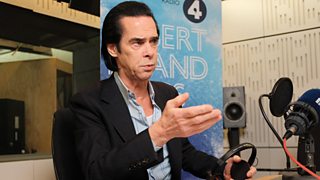
He was the first time I'd ever seen the potential of music to be evil, and outlaw, and dangerous.Nick Cave explains the impact of seeing Johnny Cash on TV.
He says, “There was something about Johnny Cash that really captured me. He was the first time I'd ever seen the potential of music to be evil, and outlaw, and dangerous. He looked like a dangerous guy. He dressed in black and he started off the programme going [Nick mimics Johnny’s gravelly voice], ‘Hello, I’m Johnny Cash’, and he would swing around. There was just this gravity to the man.”
The Johnny Cash Show ran from 1969-1971 and, in addition to Bob Dylan, guests included Joni Mitchell, Kris Kristofferson, Tammy Wynette and Neil Young.
6. Grief opened him up to the loss and sadness of strangers
Nick has experienced the death of two of his four sons, Arthur and Jethro. In 2018 he started his blog the Red Hand Files, which is an online forum for people to ask him questions on a subject of their choosing and he tries to answer one question a week.
He says, “I use them [the Red Hand Files] to try and articulate the way I was feeling and the way I felt about Arthur’s death. There is a kind of river of sadness that runs through the Red Hand Files that is to do with loss and I think it’s really coloured my way of viewing the world.”
He continues, “What I really want to try and do is to let people know in some way that it doesn’t have to be thus and that there is a world beyond the grief that they feel.”
7. His artistic endeavours don’t end with music
Nick describes himself as a legitimate ceramicist. He says, “I collect Staffordshire-style figurines, which are little figurines mass-produced in the Victorian era… COVID had happened and I had nothing to do; I couldn’t go on tour and I picked up one of these little Staffordshires – I used to make similar figurines when I was a teenager – and looked at it and kind of thought, ‘I could do that.’ As it turns out it was a hell of a lot harder than I thought it was!”
Nick gifted many of the sculptures he made throughout his life to his mother, who had treasured them. On the day she died, he was due to have his first ceramics lesson. When Nick went to cancel it, his wife urged him not to. He remembers that, “really it was something extremely beautiful about just sitting there and poking my fingers into this clay, and trying to make some sense out of this basic material. I mean, it was more than therapeutic. It was a sort of spiritual thing."
8. Performing brings him joy
Nick continues to perform and has no interest in stopping. He says, “I get much joy out of my work. It’s quite a privilege to go on stage and play to people. I understand that more… I always thought I’d stop doing it when I couldn’t do knee-drops any more. Actually, when I look back I haven’t done so many [but] I could do. I can get down, it’s getting up that’s a little bit harder!”
